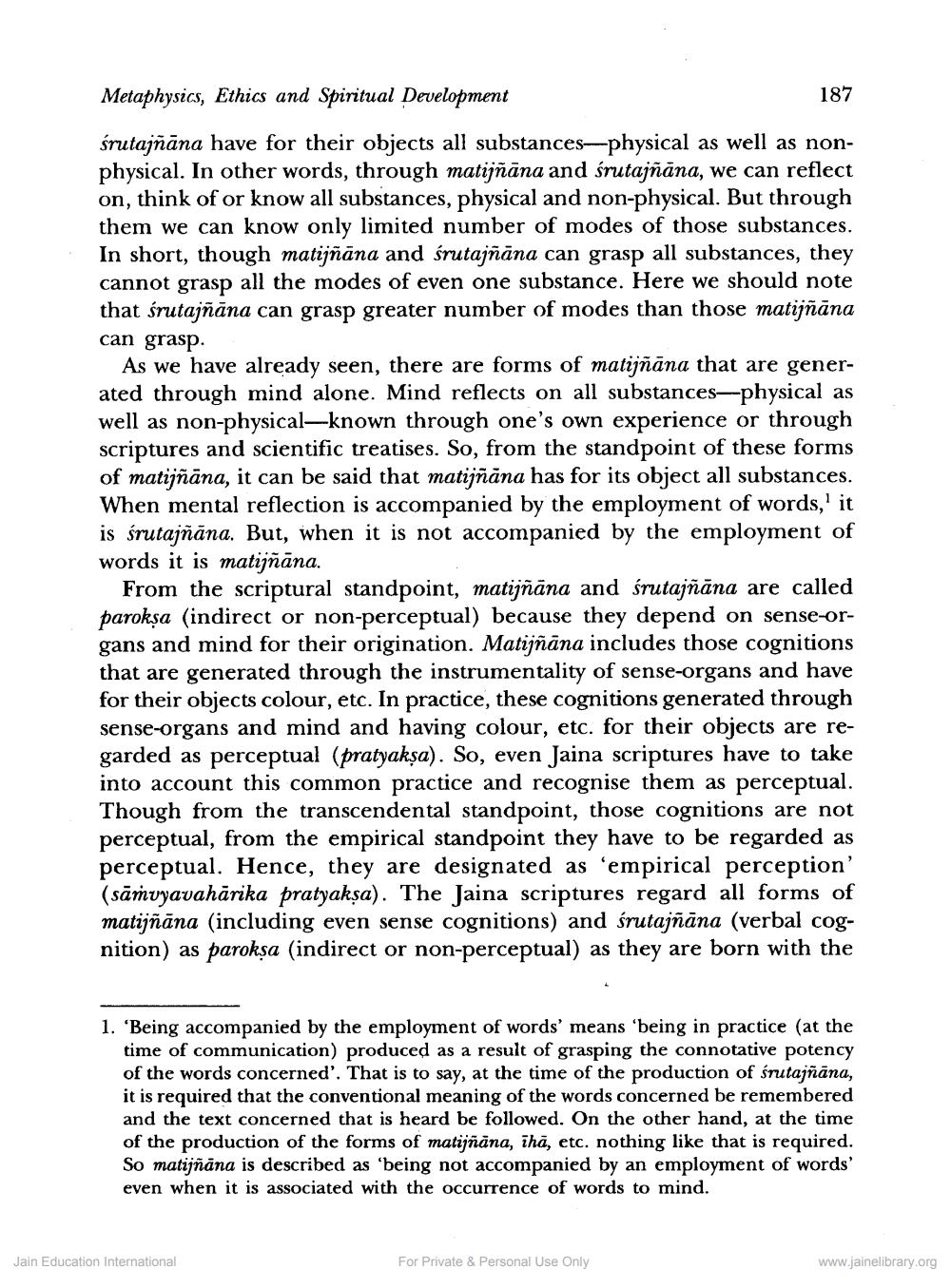________________
Metaphysics, Ethics and Spiritual Development
187
śrutajñāna have for their objects all substances--physical as well as nonphysical. In other words, through matijñāna and śrutajñāna, we can reflect on, think of or know all substances, physical and non-physical. But through them we can know only limited number of modes of those substances. In short, though matijñāna and śrutajñāna can grasp all substances, they cannot grasp all the modes of even one substance. Here we should note that śrutajñāna can grasp greater number of modes than those matijñāna can grasp.
As we have already seen, there are forms of matijñāna that are generated through mind alone. Mind reflects on all substances-physical as well as non-physical—known through one's own experience or through scriptures and scientific treatises. So, from the standpoint of these forms of matijñāna, it can be said that matijñāna has for its object all substances. When mental reflection is accompanied by the employment of words, it is śrutajñāna. But, when it is not accompanied by the employment of words it is matijñāna.
From the scriptural standpoint, matijñāna and śrutajñāna are called paroksa (indirect or non-perceptual) because they depend on sense-organs and mind for their origination. Matijñāna includes those cognitions that are generated through the instrumentality of sense-organs and have for their objects colour, etc. In practice, these cognitions generated through sense-organs and mind and having colour, etc. for their objects are regarded as perceptual (pratyakşa). So, even Jaina scriptures have to take into account this common practice and recognise them as perceptual. Though from the transcendental standpoint, those cognitions are not perceptual, from the empirical standpoint they have to be regarded as perceptual. Hence, they are designated as 'empirical perception' (sāmvyavahārika pratyakşa). The Jaina scriptures regard all forms of matijñāna (including even sense cognitions) and śrutajñāna (verbal cognition) as paroksa (indirect or non-perceptual) as they are born with the
1. 'Being accompanied by the employment of words' means 'being in practice (at the
time of communication) produced as a result of grasping the connotative potency of the words concerned'. That is to say, at the time of the production of śrutajñāna, it is required that the conventional meaning of the words concerned be remembered and the text concerned that is heard be followed. On the other hand, at the time of the production of the forms of matijñāna, ihā, etc. nothing like that is required. So matijñāna is described as 'being not accompanied by an employment of words' even when it is associated with the occurrence of words to mind.
Jain Education International
For Private & Personal Use Only
www.jainelibrary.org




